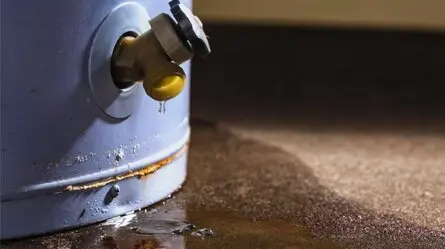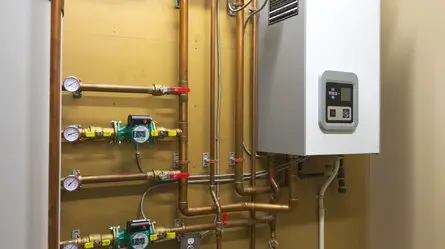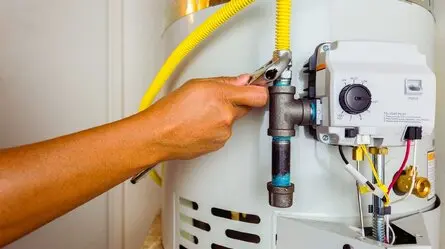A hot water system is a significant investment, and its longevity is often a concern for homeowners. Most systems can provide reliable hot water for many years with proper maintenance. However, several factors impact lifespan. In this article, we’ll explore those factors and discuss realistic timeframes for today’s most common hot water systems—gas, electric, and solar.
If you have a traditional gas or electric hot water heater, it usually lasts between 8 to 15 years. On the other hand, tankless and solar systems can stretch up to 20 years or even longer. With good care and regular upkeep, a top-notch setup might beat these averages. But remember, no matter what type you have, replacement will eventually be necessary.
Knowing the estimated lifespan of different hot water systems can help you make the best choice for your needs and budget. We’ll look at how aspects like water quality, usage levels, and proper maintenance impact the longevity of your hot water systems. We’ll also review when to replace an aging hot water heater and tips for getting the most value from your system.
Let’s explore the key factors determining how long your hot water system should last!
Lifespan Of Various Hot Water Systems
Electric And Gas Storage Tank Systems
Electric and gas storage tank systems are the most common for homes. If you keep up with maintenance, like flushing them out annually, they generally last about 8 to 15 years.
Hard water, sediment build-up, and high water pressure shorten the lifespan. Replacing eroded anode rods extends the tank’s life. A gas hot water system lasts fewer years than an electric hot water system due to more intense heat exposure.
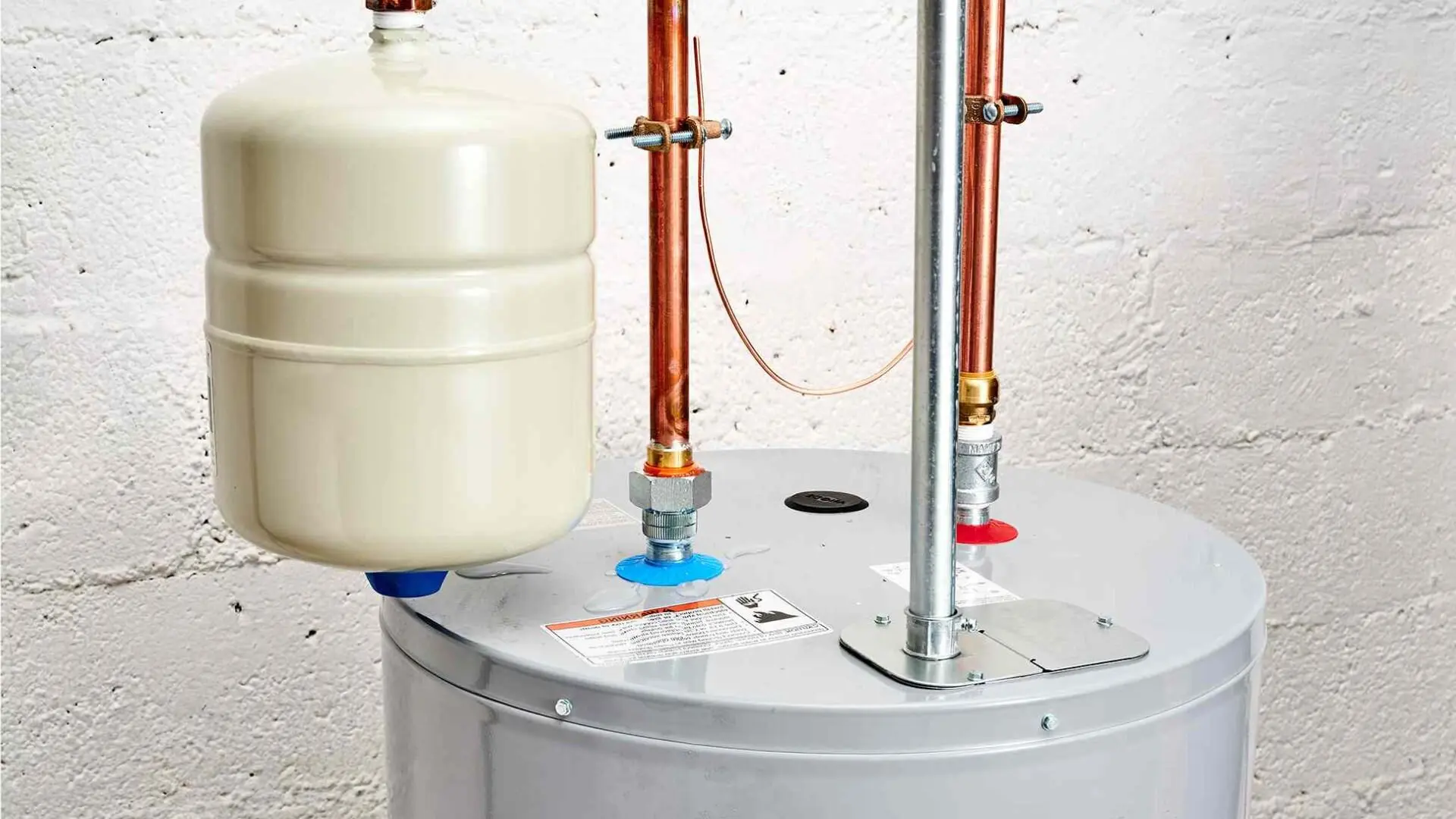
Solar Hot Water Systems
A solar hot water system uses free heat from the sun and has an average lifespan of 20+ years. There is less wear and tear with minimal mechanical parts and no burner or heating element. However, the solar panels and heat exchangers still require maintenance. Proper installation in a sunny location also maximises solar gain and longevity. The initial cost is high, but the lack of monthly utility bills provides long-term savings.
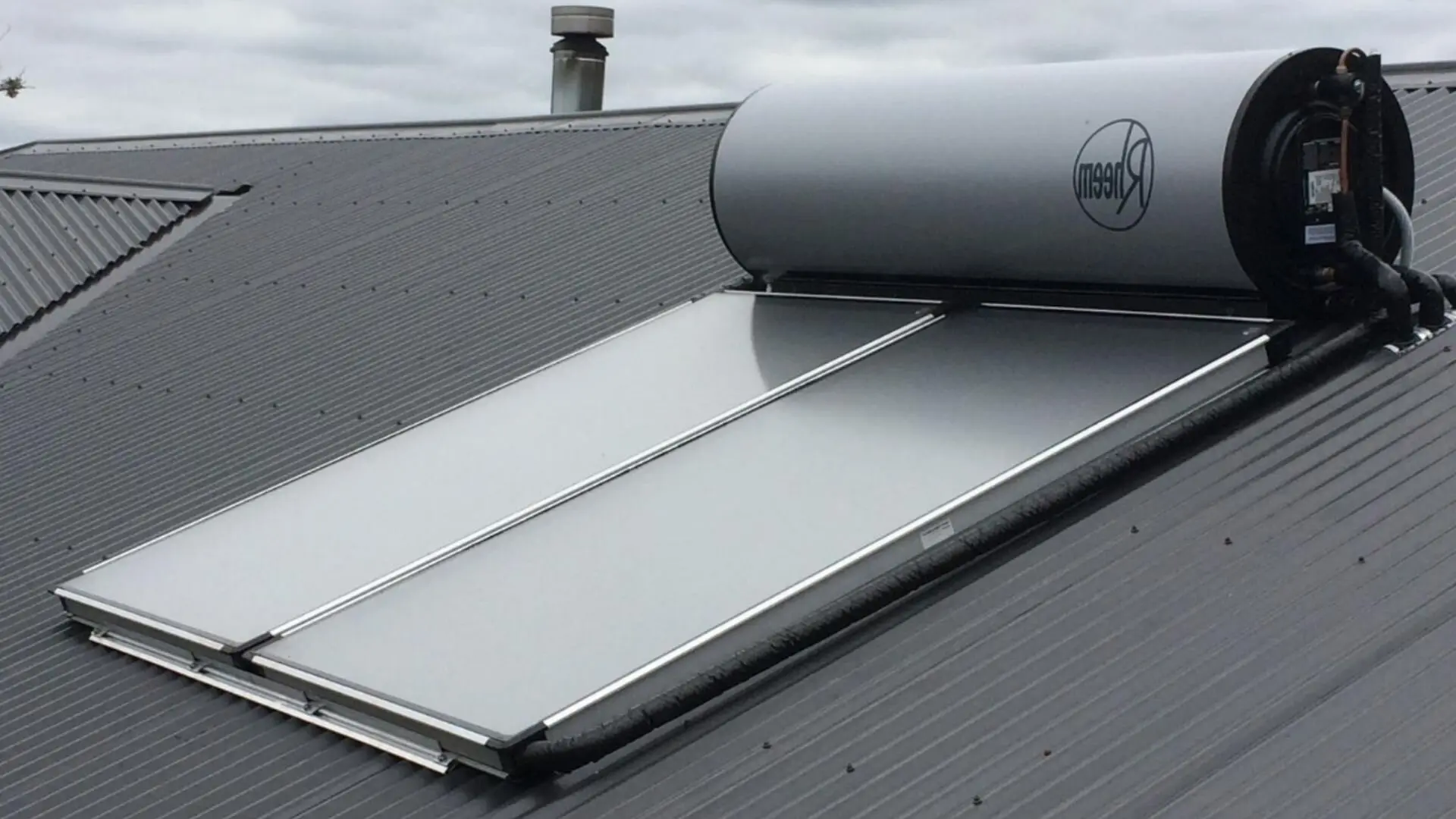
Heat Pump Hot Water Systems
Heat pump water heaters extract ambient heat, making them energy efficient. Their lifespan averages 15-20 years. Annual maintenance like cleaning coils and draining the tank prevents build-up and corrosion, ensuring maximum lifespan. Heat pump hot water units come in both tank and tankless versions. Tankless models last longer by eliminating tank corrosion risks.
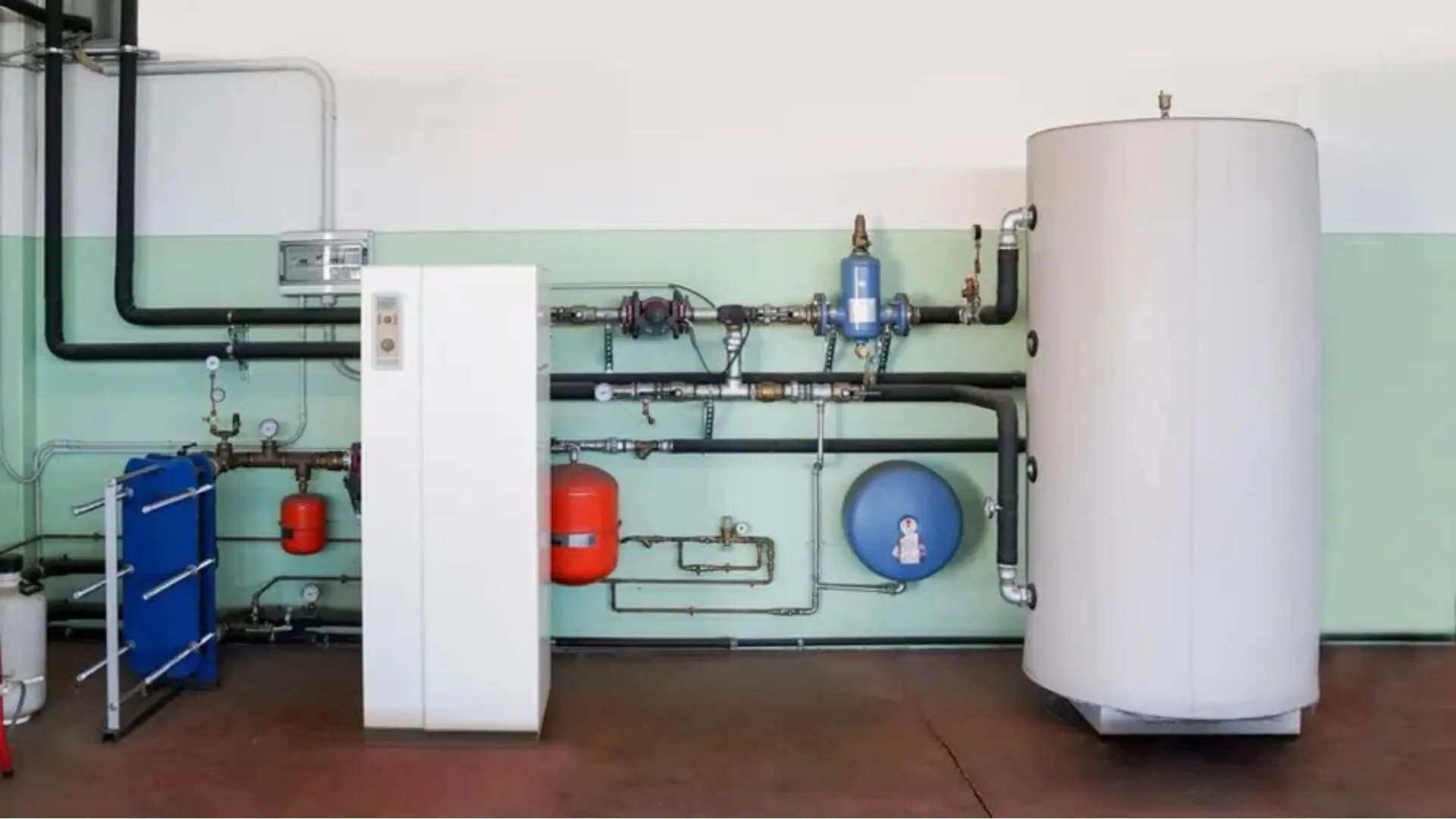
Tankless/Continuous Flow Systems
Tankless or continuous-flow water heaters heat water on demand instead of storing it. This eliminates tank corrosion and sediment accumulation, extending the lifespan to 15-20 years. However, frequent heating cycles still wear out components over time. Proper scale prevention and venting are essential for longevity. Condensing tankless models have the longest lifespans, up to 20-25 years.
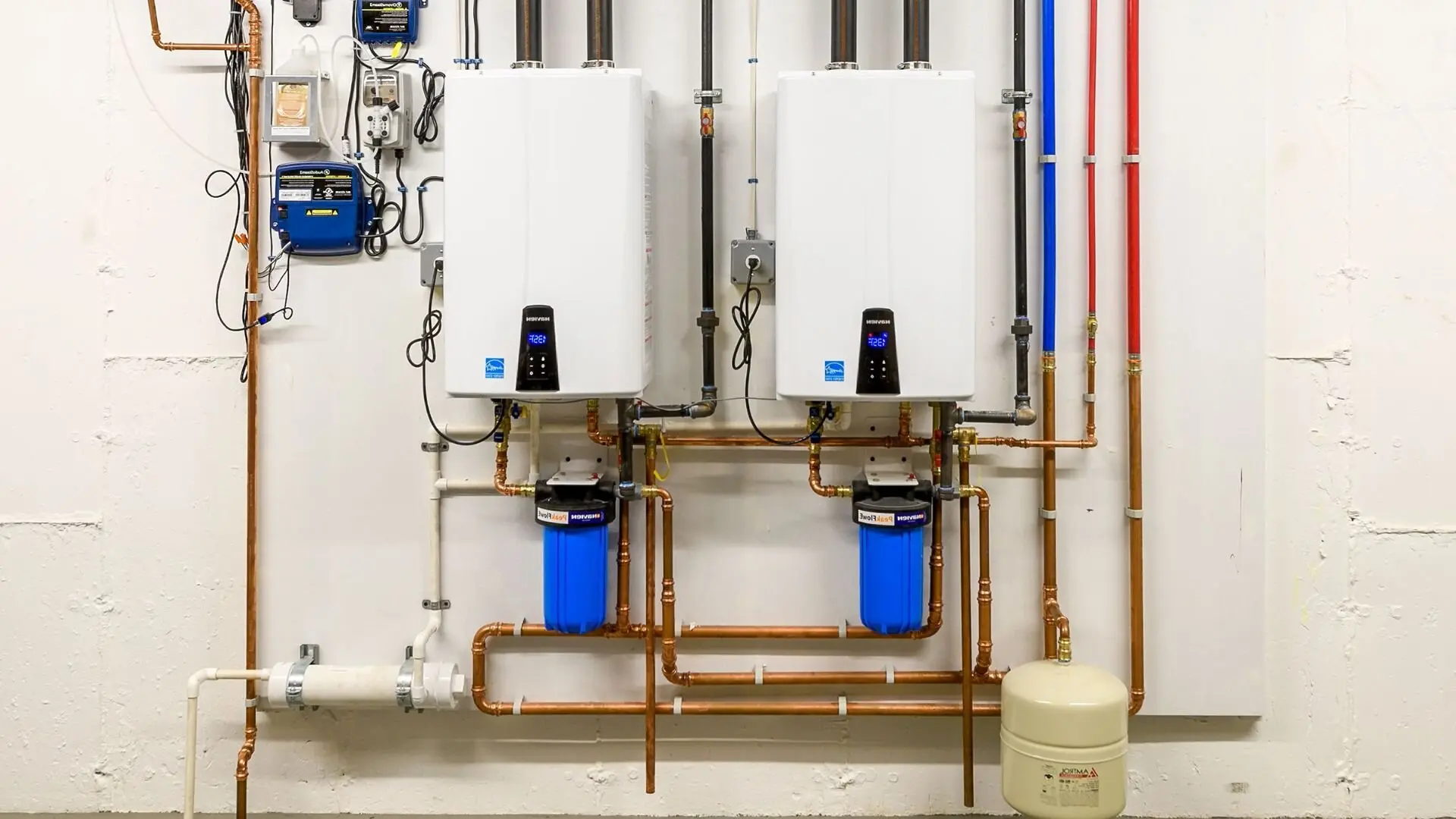
What Influences Hot Water System Lifespan?
Various factors can affect how long your hot water system lasts. One key aspect is water quality. Hard water, which has high minerals, can corrode heating elements and cause sludge, shortening the system’s life.
The type of system also plays a role. Gas and electric systems, for instance, have different maintenance needs and lifespans. Electric systems mostly suffer from broken heating elements, while gas systems might have issues with the gas burner.
Another critical factor is the storage tank’s condition. Enamel-lined tanks, for instance, can last longer as the enamel coating protects the tank from corrosion. Nonetheless, tank corrosion can still occur, especially at the bottom of the tank, where sediment accumulates.
The system’s usage also impacts its lifespan. Heavier use puts more strain on the system, which can reduce its life expectancy. For instance, your system might wear out sooner if your hot water runs frequently.
Ensuring Longevity Through Maintenance and Repair
Regular upkeep is key to keeping your hot water system going strong. This often means having a licensed plumber inspect and fix things when needed. Routine flushing helps get rid of sludge build-up, preventing corrosion and extending the system’s life.
In addition, replacing parts like the anode rod every few years is a preventive measure that can help avoid bigger plumbing problems down the line. If you notice discoloured water or a decrease in the amount of hot water your system produces, depending on the type of system, there might be a problem with the heating elements or the gas burner.
Maintenance Tips For Gas Hot Water Systems
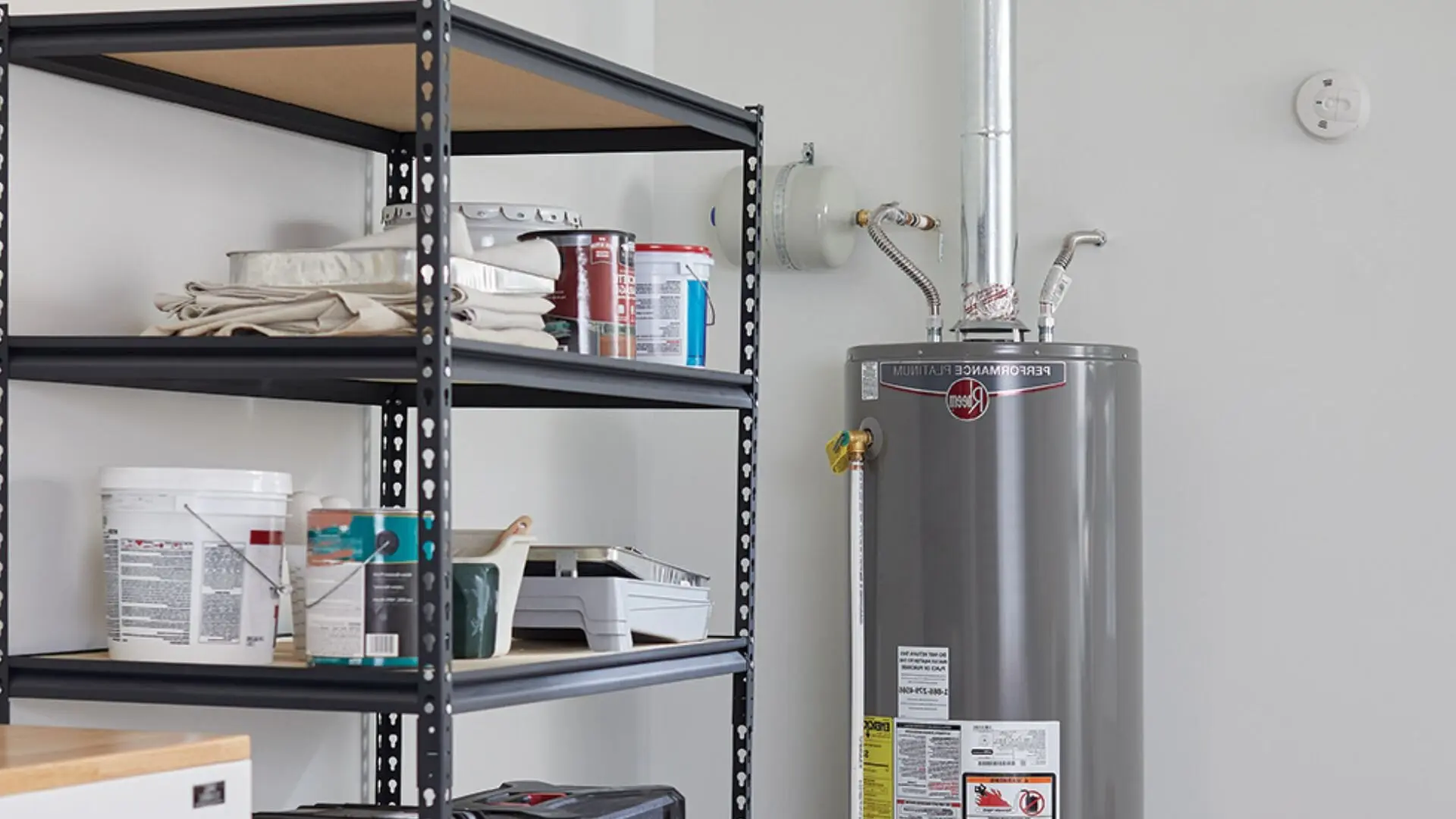
For gas hot water systems:
- Inspect gas lines annually for leaks and fix any issues immediately. Use a soap solution to check for bubbles.
- Check that the gas burner flames are clean and even. Have a technician adjust or replace if needed.
- Flush the tank annually to remove sludge and sediment from the bottom. This can prevent corrosion.
- Lubricate circulating pumps and motors annually if present.
- Clear any debris or obstructions from gas ventilation to maintain proper airflow.
Maintenance Tips For Electric Hot Water Systems
For electric hot water systems:
- Inspect electrical wiring and connections annually for corrosion and damage. Tighten any loose connections.
- Verify that the heating elements remain fully submerged when the water level drops from heating. Adjust the thermostat if needed.
- Drain several gallons from the tank drain valve yearly to flush sediment from the bottom of the tank.
- Check heating elements for mineral deposits and limescale. Remove any build-up present.
- Replace any heating elements that are cracked, scorched, or otherwise damaged.
Maintenance Tips For Solar Hot Water Systems
For solar hot water systems:
- Inspect solar collectors annually for broken glass, frame damage, etc. Repair any issues.
- Check glycol/water heating solution level in collectors. Top up if low.
- Examine piping insulation for degradation. Repair damaged sections.
- Confirm antifreeze levels in a solar storage tank. Add more if required.
- Flush the hot water storage tank annually to remove sediment, as with other systems.
When To Consider A New Hot Water System
Even with proper care, every system has an average lifespan, after which its performance may decline. If you find yourself calling for hot water services frequently or your system is nearing the end of its lifespan, it might be time to consider a new hot water system.
When considering a new system, consult local hot water experts. They can advise which system is right for you based on factors such as how much hot water you use, the quality of your cold water supply, and your budget.
New hot water systems often come with a hot water system warranty, which can provide peace of mind for a few more years. Different materials and technologies offer other benefits. For instance, solar hot water systems can provide long-term energy savings, while gas and electric systems might be more cost-effective upfront.
Getting The Most From Your Hot Water System
Your hot water system represents a major investment in your home’s comfort and convenience. With attentive care and maintenance, you can maximise its years of reliable service. Be sure to flush sediment, monitor anode rods, and address leaks promptly. Consider a maintenance agreement if DIY care is difficult. Choosing quality components and installing them according to manufacturer guidelines prevent premature failures.
If your current hot water system is aging or experiencing issues, contact our team today at Woolf Plumbing. We can troubleshoot problems, identify solutions to optimise longevity and determine when replacement is wise. With periodic replacements and attentive maintenance, your hot water system can continue providing abundant heated water to your household for years. Don’t endure the frustration of unpredictable hot water - call our Perth hot water specialists today!
FAQs Hot Water Systems
How often should you replace your hot water system?
Most residential hot water systems last about 8 to 15 years. To keep your hot water running smoothly, consider replacing your system every 10 to 15 years, or sooner if you notice problems like leaks or a decrease in hot water.
Should I replace my 15-year-old water heater?
Replacement is typically recommended if your water heater is around 15 years old. Once systems reach 10-15 years old, failure risks rise, and parts like the tank often show significant corrosion. Replacing an aging 15-year-old unit before major issues arise is usually the best approach.
How long does a 50-litre hot water system last?
A 50-litre hot water system will typically last 8-12 years on average. Smaller tanks, like 50 litres, tend to have faster wear and corrosion due to increased heating cycles for less water. You may get up to 15 years with proper maintenance, like annual flushing, but expect to replace after 10-12 years.
How do you know when a hot water heater needs to be replaced?
Signs your hot water heater needs replacing include leaking tanks, rusty/discoloured water, loud noises, lack of hot water, excessive sediment build-up, and failure of components like valves and heating elements. When any of these issues arise, replacement is usually the best option.


